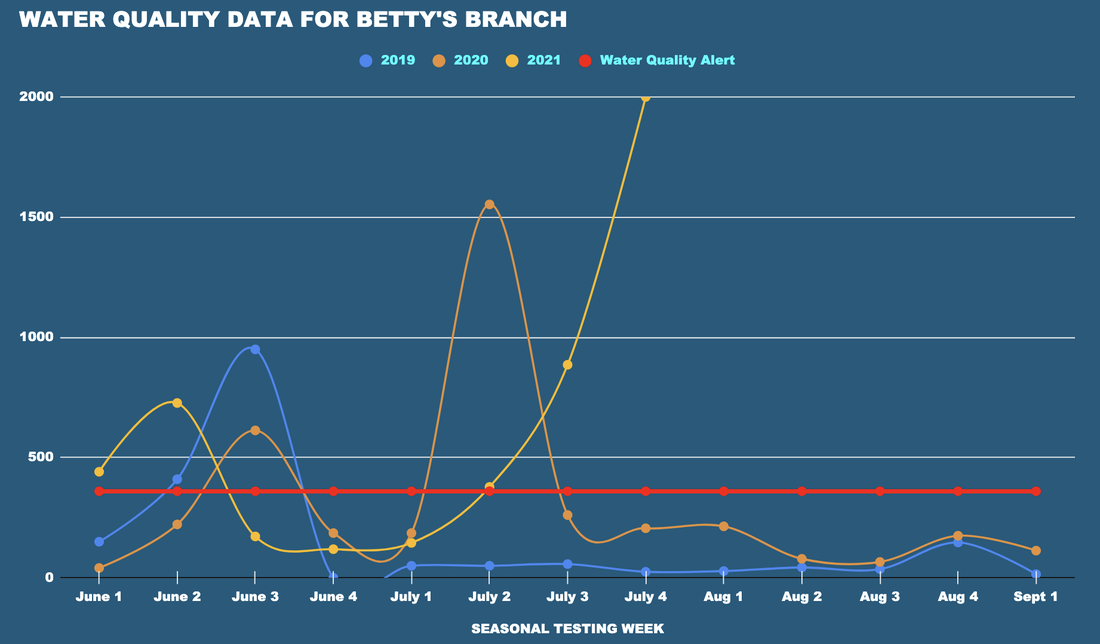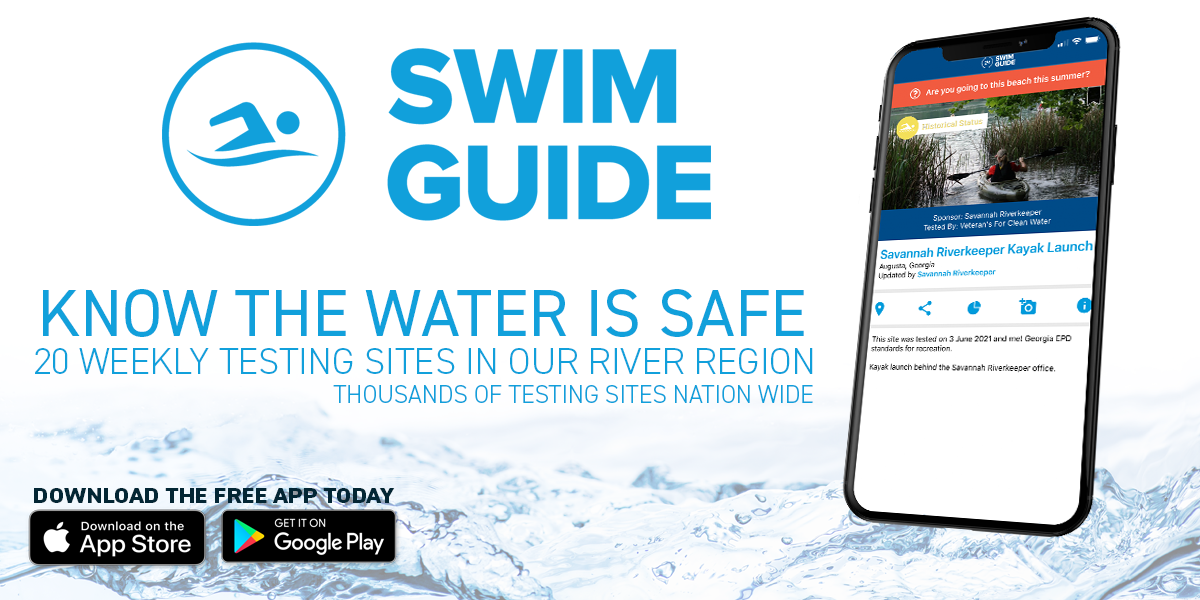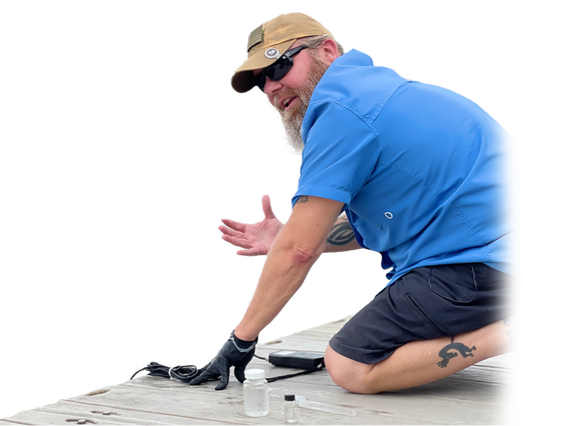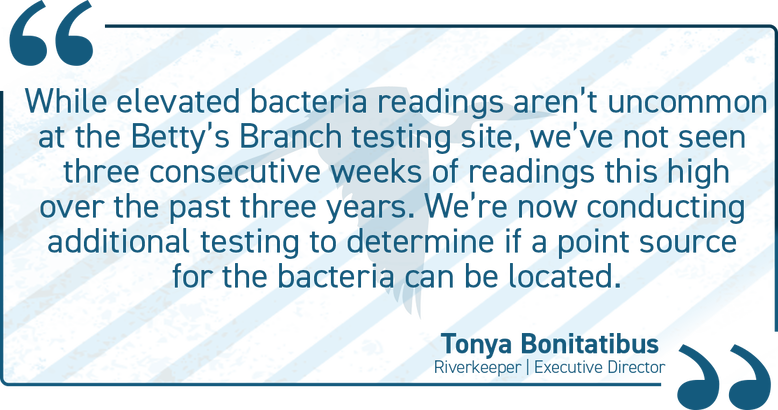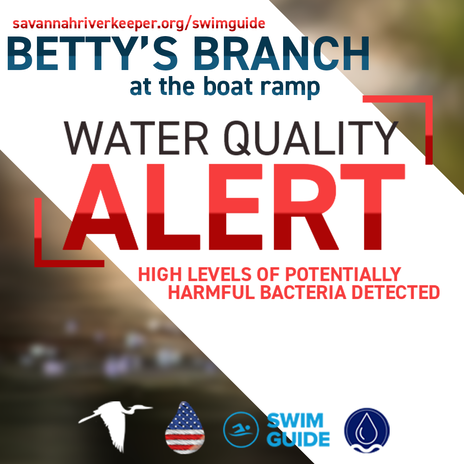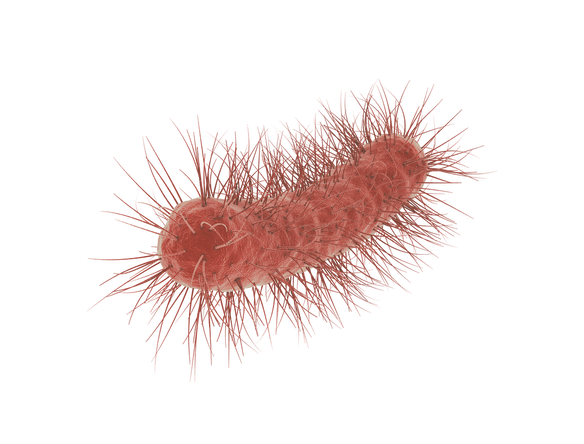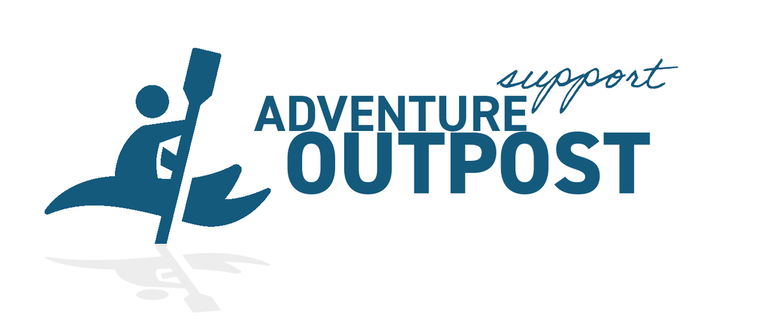the history of water testing on betty's branch
|
Savannah Riverkeeper, through its award-winning Veterans For Clean Water program, has carried out water testing along the banks of Betty's Branch for the last three years. The beauty of Betty's Branch with its smooth current and easy access makes this a perfect place for a fun paddle. The recreational attraction is why Savannah Riverkeeper continues to carry out weekly water quality testing at the Betty's Branch Boat Ramp. The information we collect is data we are proud to share with others who love the outdoors and the expedition outposts that depend on clean water to keep their tours running.
|
The Betty's Branch Testing Site
|
As with the other 20 testing sites where trained civilian scientists carry out weekly water testing, the site at Betty's Branch is a spot where people are most likely to touch the water. While the water quality closer to the Savannah River, or in a deeper part of the branch, might have different water quality results, consistently testing at the same highly used spot gives our testing consistency, at a place we know people interact with that waterway.
|
The issues at Betty's Branch
|
For a third consecutive week, water quality testing has triggered a Savannah Riverkeeper Water Quality Alert at the Betty's Branch testing site. While the results are concerning, there are several things to consider. This year, the water level along Betty's Branch has been lowered as work continues on the Steven's Creek Dam just downriver. Shallow water heats up faster, allowing bacteria to grow more quickly. While research is underway to figure out if a non-natural source is to blame, remember E. Coli also comes from animal waste, which naturally washes into our waterways. Stormwater is also a common cause of E. Coli spikes. Heavy rain washes street surface germs through ditches, down drains, and into our waterways.
|
What triggers a Savannah Riverkeeper Water Quality Alert?
Our testing model comes from the Georgia Department of Environmental Protection's standards for safe water recreation. We take the results from weekly water samples and categorize the E. Coli bacteria reading into three categories. A sample read with 360MPN/mL or more, a Savannah Riverkeeper Water Quality Alert is issued. A water quality alert means a potentially unsafe level of harmful bacteria has been detected in the water.
WHAT IS E. COLI?
|
Escherichia coli (E. coli) is a rod-shaped bacteria commonly found in the gastrointestinal tract and feces of warm-blooded animals. It is a member of the fecal coliform group of bacteria and is distinguished by its inability to break down urease. E. coli numbers in freshwater are determined by counting the number of yellow and yellow-brown colonies growing on a 0.45-micron filter placed on m-TEC media and incubated at 35.0º C for 22-24 hours. The addition of urea substrate confirms that colonies are E. coli. This bacteria is a preferred indicator for freshwater recreation and its presence provides direct evidence of fecal contamination from warm-blooded animals. Although usually harmless, E. coli can cause illnesses such as meningitis, septicemia, urinary tract, and intestinal infections. A recently discovered strain of E. coli (E. coli 0157:H7) can cause severe disease and may be fatal in small children and the elderly.
|
What can E. Coli do to my health?
|
Consumption of or contact with water contaminated with feces of warm-blooded animals can cause a variety of illnesses. Minor gastrointestinal discomfort is probably the most common symptom; however, pathogens that may cause only minor sickness in some people may cause serious conditions or death in others, especially in the very young, old, or those with weakened immunological systems.
(Information from the USGS) |
|
While we work to find a solution to this problem, Savannah Riverkeeper is continuing the conversation with adventure outposts that rely on Betty's Branch for business. Like us, these are people who love our river and enjoy sharing its beauty with others. Not continuing to pass along water quality testing results to the public would be unethical for us. Not searching for a cause, working for a solution, and fighting for answers, would be a disservice to those fellow river-loving business owners.
|
